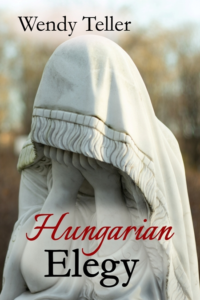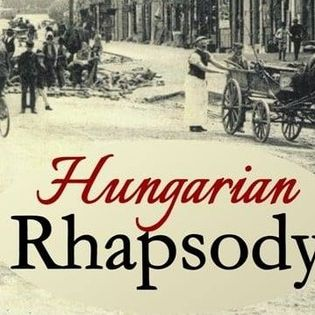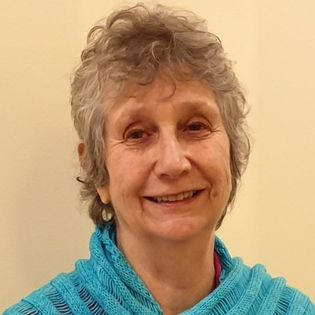
I’m very happy to introduce Wendy Teller, a fellow historical novelist whom I met through the Great Lakes chapter of the Historical Novel Society. Wendy and I have Hungarian ancestry in common as well as a love of history. Her second book in The Hungarian trilogy, Hungarian Elegy, has just been published, and she kindly took the time to answer my questions about it.
First, what is The Hungarian Trilogy about?
The Hungarian Trilogy is the story of Ella, a feminist in Hungary in the first decades of the twentieth century. The first book, Hungarian Rhapsody, takes place in a small Hungarian town in 1905. Ella rebels against her parents’ determination to marry her to a suitable older man. Even as she finds a husband acceptable to her parents and herself, Ella uncovers a family secret that throws her plans into disarray. In the second book, Hungarian Elegy, which takes place in Budapest from 1905 to 1910, Ella is swept into the colorful circle of Hungarian progressives, socialists, communists, and bourgeois gentlemen. In this sophisticated society, Ella must create her role in the women’s rights movement. In the final book, yet to be written, Ella lives through the upheavals of World War I. Even in the economic and social turmoil of the war and its aftermath, which threaten the lives of Ella and her friends, Ella keeps her dreams for women alive.
I love that your books combine history and feminism, two of my favourite things to read and write about. Where did you get the idea for the trilogy?
I wanted to explore my mother’s feminist roots, which were radical for a mid-twentieth-century woman. I knew her father had written a book in 1905, Women of Tomorrow (A holnap asszonyai). The book described the way women were treated in Hungary and recommended societal changes. My grandfather’s book would have been right at home on the bookshelf next to The Feminine Mystique, the landmark second-wave feminist book published in 1963. Hungarian Rhapsody was inspired by Women of Tomorrow, and its main character, Ella, is based on my maternal grandmother. My grandmother’s story did not end in 1905, and since she was the key to my mother’s attitudes, I continued her story in Hungarian Elegy. The research I did for the first two volumes gave me insight into World War I’s upheaval of Hungarian society. I found my grandmother’s determination to keep her vision of women’s rights alive a compelling story, one I wanted to share.
It definitely is a compelling story, and I’m glad you’re sharing it. If you could spend a day with one of your characters, who would it be and what would you do?
I wish I could talk to Ella. I would show her all the mementos I have of her, a few pieces of her silver and linens, a copy of her husband’s book, even a necklace she gave my mother on her first birthday. I’d tell her about my career, my experiences as a woman, and discuss the progress women have made and how that has changed society.
I can imagine how great it would be to share those mementos. In addition to what you found out through family connections, what kind of research did you do for this book?

My research started with basic Hungarian history. I wanted to read my grandfather’s book, written in Hungarian, so I studied Hungarian. I also found numerous articles written by my grandfather and his friends. I read books by historic characters who appear in Hungarian Elegy and I read many Hungarian novels, stories, and poems. I was also fortunate to have private memoirs of a couple who were my grandparents’ contemporaries. These memoirs were incredibly helpful, including everything from living conditions in a Budapest apartment in 1900 (there were communal toilets on every floor) to sexual attitudes (young women were kept ignorant not only about family planning but even about basic human reproduction).
You’re so lucky to have access to private memoirs: it’s every historical novelist’s dream to have a resource like that. What do you like best about the writing process? And what do you like least?
Sometimes characters seem to have a life of their own. They do things I haven’t planned. These times, when the characters take over the plot, can make me laugh out loud or can make me cry. How can one not love that? Other times, a character just isn’t working. He does things that seem artificial, stilted. That’s the worst part of writing. A reader might think this strange. Characters are the author’s creation; they don’t act on their own. That is true, but that’s not the way it feels.
I know exactly what you mean. I sometimes feel silly talking about my characters as if they’re real people, but it does feel as though they are. What intrigues you the most about Hungarian history?
In the early 20th century Hungary seemed exotic and a bit dangerous. Perhaps the 150 years of Turkish occupation made it so. The characters in my book thought of this “eastward facing society” as a scourge. They wanted to be modern, to be “western.” I wonder what caused 1900 Hungary to be such a “feudal” society, for even though its serfs had been freed in the mid-19th century, in fact Hungarian aristocrats held thousands of acres and had control, even life and death control, over the peasants who lived on their lands. I have read the situation in eastern Prussia was similar in the early 20th century and I read a suggestion that lands that were not conquered by Napoleon were similarly backward. What did Napoleon bring to lands he subdued? Maybe this is the beginning of another novel.
I hope so! Did you encounter any resistance from family members to writing a story about their own history?
My family supports my writing. I am the one who has issues with it! Some of my characters, including some of my relatives, were committed communists. Being a child of the Cold War, it is difficult for me to sympathize with this part of my characters. I have had to come to terms with their views, remembering these stories take place in a society that needed to change. It was not obvious how to change it, nor was it obvious, at that early point, what communism would become in practice.

I’ve come across a similar conflict between my dad’s experience of communism growing up in Hungary in the 30’s and 40’s and what I learned about it in university. How do you find the balance between historical fact and fiction in your writing?
I write fiction because what is true depends, at least in part, on the point of view of the character. Certainly there are things not open to debate: the Treaty of Trianon changed Hungary’s borders. But whether this was justified or a travesty depends on who’s talking. I don’t knowingly write things that are historically inaccurate, but that leaves plenty of room for debate and drama.
Thanks for talking to me, Wendy! I look forward to reading your latest novel.
Where to find Wendy’s books:
Hungarian Rhapsody
Hungarian Elegy
Where to find out more about Wendy: https://wendytellercom.wordpress.com/